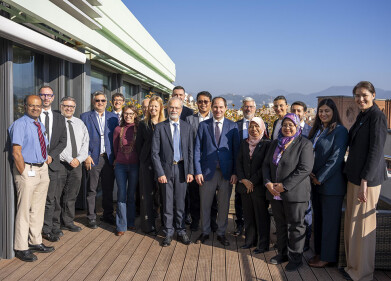Air clean up
Does Anti-Pollution Skincare Work?
Sep 07 2017
The harmful effects of air pollution are well documented. The World Health Organisation (WHO) has attributed a staggering seven million premature deaths to poor air quality every year worldwide, with over 40,000 of those in the UK alone.
More recently, it has also been discovered that air pollution can have a damaging effect on our skin as well, prompting pharmaceutical companies to come up with a wide array of skincare products marketed as preventing or fighting the harmful effects of pollution. But do they work?
What the skincare claims to do
The two main culprits when it comes to damaging our skin are particulate matter 2.5 (PM2.5) and nitrogen dioxide (NO2). These can settle upon the surface of the skin, thus compromising the structure of its DNA and weakening its defences. At the same time, inhalation of these and other contaminants can have a similarly debilitating effect on skin strength and resiliency.
With that in mind, anti-pollution skincare companies market their products as having four key benefits. These are comprised of:
- The ability to clean up contaminants from the surface of the skin.
Throughout the day, pollutants are prone to accumulating upon our skin’s surface, which, if untreated, can deteriorate as a direct result. Therefore, it’s only common sense that cleansing it on a regular basis can help to counteract this process.
“There's nothing magical about cleansers as long as they effectively take off the protective sunscreen and product you've been wearing all day,” explains Dr Mervyn Patterson. “This should also remove the layer of PM debris and other polluting materials your product should have trapped and absorbed.”
- The prevention of melanin (darkening of the skin’s pigmentation).
Recently, the Journal of Investigative Dermatology found that prolonged and repeated exposure to traffic pollution in urban areas can have an impact upon the pigmentation of skin. In one particular study, there were 25% more age spots on the faces of 400 respondents who had been exposed to urban pollution.
“Pigmentation can now be very successfully treated with topical skincare products that target the production of melanin in the skin,” says Dr Patterson. “It is, however, very important that we first repair the skin barrier and dampen chronic inflammation which is the key driver to the triggering of melanin production. A simple analogy is we wouldn't redecorate the house before first repairing the leaking roof!”
- The strengthening of the skin as a first-line defence.
“For a healthy functioning skin barrier there are three groups of lipids that constantly need to be repaired: cholesterol, ceramide and fatty acids which ideally exist in a ratio of 3:1:1,” says Dr Patterson. “These lipids lie between our surface roof tiles and are skin's natural protection.”
Using creams which contain these lipids in such a ratio can help to reduce levels of sebum and enhance vitamin E, thus maintaining the skin’s resistance to contaminants and damaging influences.
- Reducing free radical damage through enhanced antioxidation.
With PM2.5 particles having a diameter roughly 30 times thinner than a human hair, it’s all but impossible to prevent inhaling them – never mind letting them settle on your skin! Over time, they can cause free radical damage to the skin’s surface, which antioxidant cream claims to prevent.
However, Dr Patterson is wary of such assertions. “The problem is: how do we measure the effectiveness of antioxidant protection?” he asks. “Unlike SPF protection, which is quantifiable, there's no easy way to test for inflammatory load or antioxidant defence. Additionally, the antioxidant claim may prove itself in the lab but this doesn't always correspond to the skin.”
The verdict
There you have it – right from the horse’s expert’s mouth: anti-pollution skincare can definitely go some way to cleansing your skin and enhancing its natural resilience against pollution, as well as fighting the effects of pigmentation. The jury is still out on antioxidation, but there’s certainly a case for its use.
However, surely the best policy would be to improve air quality and reduce transport-related pollution altogether? Such a course of action relies heavily on governmental and corporation participation, but on an individual level, we can make small adjustments to our daily routine to avoid exposure to air pollution and reduce our contribution to it.
Events
Feb 05 2025 Nantes, France
Feb 16 2025 Kampala, Uganda
Feb 26 2025 Chennai, India
Feb 26 2025 Tulsa, OK, USA
WATERTECH CHINA (GUANGDONG) 2025
Mar 05 2025 Guangdong, China












